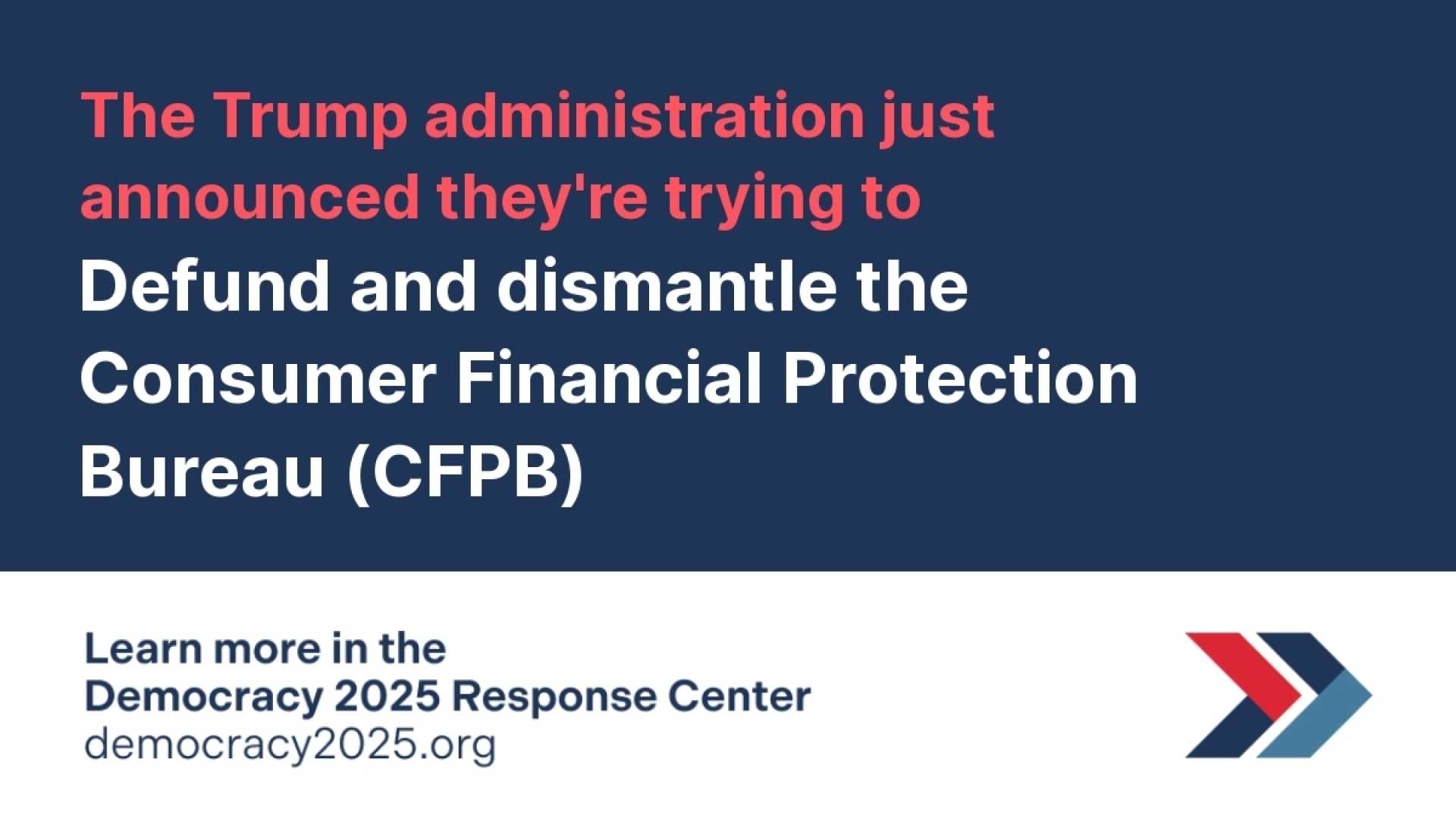Business
Trump Administration Declares CFPB Funding Illegal, Agency Faces Closure

WASHINGTON—The Trump Administration has declared that the Consumer Financial Protection Bureau‘s (CFPB) self-funding mechanism is unlawful, putting the agency on a path toward potential closure in early 2026. Credit union leaders, who depend on the Bureau’s oversight of consumer finance and enforcement of unfair practices, see this decision as a significant disruption.
In a court filing released Monday, the Administration announced that the CFPB is legally barred from seeking additional funds from the Federal Reserve. This funding source, established under the Dodd-Frank Wall Street Reform and Consumer Protection Act, is critical for the agency’s operations. POLITICO reports that the Bureau anticipates exhausting its remaining resources by early 2026.
The Fifth Circuit previously ruled that the CFPB’s funding stream is unconstitutional. This ruling raises concerns for credit unions and other financial institutions navigating a disrupted regulatory landscape. The Justice Department‘s Office of Legal Counsel argues that the CFPB can only draw funds from the Federal Reserve’s net profits, which have been negative since 2022.
Democrats and consumer advocacy groups have expressed alarm that shutting down the CFPB would leave the vast U.S. consumer-debt market without essential oversight, especially as delinquencies for credit cards, auto loans, and student loans remain high.
For credit unions, which rely on the CFPB for handling complaints and enforcing rules, the potential regulatory gaps could heighten compliance uncertainty and increase costs. Experts warn that this shift could divert focus from member services to risk management.
Jason Stverak, Chief Advocacy Officer for the Defense Credit Union Council, stated, “Today’s determination by the Trump administration that the CFPB’s funding mechanism is unlawful underscores what we’ve warned for years: that the Bureau’s structure and lack of accountability were bound to collide with reality.”
Stverak emphasized that this issue transcends politics, pointing out that the CFPB has long operated without sufficient oversight or transparency, hindering community-based credit unions.
He noted that credit unions are already regulated by the National Credit Union Administration (NCUA), and argued that additional CFPB rules have only created compliance confusion. Stverak predicted that the courts would be called upon to clarify the limits of the Bureau’s authority and its funding interpretation. The outcome will ultimately determine the CFPB’s future, he said, but financial institutions and consumers deserve clarity amid this uncertainty.












